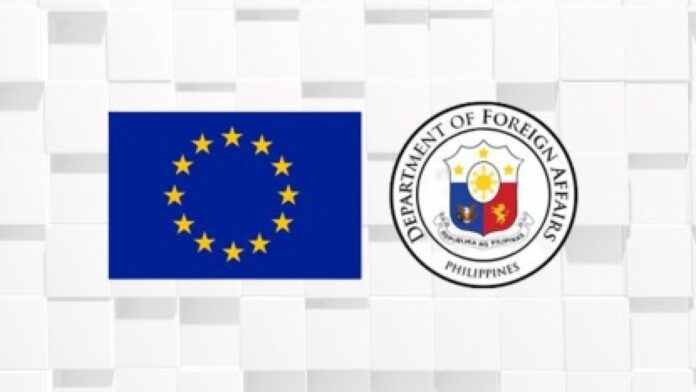Safeguarding journalists was among the key topics Manila and the European Union (EU) discussed in a meeting on human rights this week, the Department of Foreign Affairs (DFA) said Friday night.
“Both sides underlined the importance of a strong independent media environment, including by strengthening prosecution for crimes against journalists,” the two parties’ joint statement read.
The statement was made following the second EU-Philippines sub-committee meeting on good governance, rule of law, and human rights in Manila on Thursday.
The statement also came days after two unidentified gunmen shot dead veteran broadcaster Percival Mabasa, which earlier prompted widespread outrage, as well as concern from the international community, including the EU and other European countries.
“Former senator Leila de Lima’s case was also raised, as well as the cases of journalists and media workers, such as Maria Ressa, when freedom of opinion and expression, media and information were discussed at length. The Philippines provided updates to these cases,” it added.
Aside from protecting the rights of journalists, the sub-committee meeting also covered migration, boosting the criminal justice system, the Mindanao peace process, and the Philippines’ commitments to address alleged extrajudicial killings.
“Both the EU and the Philippines reaffirmed their commitment to the promotion and protection of human rights while recognizing the need for further action on a number of human rights issues,” their statement read. “The GSP+ monitoring mission of February 2022, assessed the progress, and provided an additional platform for continued engagement on human rights and labor rights issues.”
The right to development along with freedom of association and assembly were also tackled.
The two sides are committed to protecting human rights defenders from violence and harassment and ensuring the freedom of civil society.
Both sides expressed concern at the reported cases of violations and abuses of human rights and international humanitarian laws and highlighted the need to ensure that perpetrators are held accountable.
The Philippines then highlighted the importance of the United Nations Joint Program on Human Rights (UNJP), which supports the government’s commitments in the areas of accountability, including in the context of the anti-illegal drugs campaign, police data on human rights violations, civic space, drug control, counter-terrorism, and national reporting mechanism.
The EU reaffirmed its continued support for the UNJP and the strengthening of illegal drug rehabilitation, reintegration, and advocacy work.
The EU encouraged the Philippines to continue its constructive engagement and to strengthen cooperation with civil society organizations.
Both countries, meanwhile, looked forward to participating in the 4th Asean-EU Policy Dialogue on Human Rights from October 24 to 26.
The Philippines likewise invited the EU to take part in the activities and programs of the Asean Intergovernmental Commission on Human Rights.
The sub-committee was co-chaired by Jaime Victor Ledda, assistant secretary of the Office of European Affairs of the Department of Foreign Affairs, and Paola Pampaloni, deputy managing director for Asia and the Pacific of the European External Action Service. (PNA)


